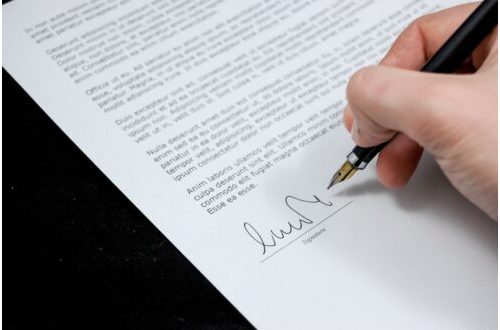It’s all in a name – how to change name post-divorce
With Angelina Jolie and Brad Pitt’s daughter, Shiloh’s decision to drop her father’s surname hitting the headlines, we look at the pros and cons of changing your name after a divorce.
What’s in a name?
Our names are an integral part of our identity. They connect us to our family and give us a sense of belonging. When marrying, it is increasingly common for couples to combine their surnames, so that future generations can carry both family names forward.
The case for reverting to your maiden name
Post-divorce, many people decide to revert to their maiden name to make more of a clean break and signify a fresh start. The impact is as much psychological, as it is practical. There is also the question of any children you share and what happens to their names. As Shiloh has now come of age, she has taken the decision to remove her father’s surname, Pitt from her own.
The case for retaining your married name
For others, it is more practical to keep their married name. Where there are children involved, all having the same surname makes travel more straightforward, along with dealing with appointments for schools, dentists and doctors. What’s more, if you’ve been married for a long time and are known professionally by your married name, it can make life easier to keep the name that everyone knows you by.
How to change your name
Changing your title from Mrs to Ms, or any other title you choose, requires no legal action. You can simply use your preferred title on any official documents when required.
To revert back to your maiden name involves reversing the process by which you changed your name after marrying. You’ll need your:
- Marriage Certificate
- Birth Certificate
- Final Order (formerly a Decree Absolute)
- A signed declaration that you are reverting to your maiden name ‘for all purposes.’
These documents can be used to update your name on any official paperwork. The only document that incurs a cost is your passport and we’d advise co-ordinating any name change with the passport’s renewal date to avoid unnecessary expense.
Changing the name of a child
As in the case with Shiloh Jolie, once a person is over the age of 18-years-old, they have the right to change their name. Until then, if as parents you both feel that it is in the best interests of the child to change their surname, you will be able to do this. However, it cannot be decided without the permission of both parents.
This can be an emotive issue and talking through your concerns with each other can help to resolve the matter. In all discussions, it is important to focus on what is best for the children.
Who to tell
If you do change your name, it’s important to let people know. While the following list is not exhaustive, it’s a starting point to help you.
- Employer
- Bank
- Building Society
- Mortgage Company
- Pension Company
- Insurance Company
- Utility Companies
- Telephone Companies – landline and mobile
- Local Authority
- TV Licencing Office
- Credit Card Companies
- Inland revenue
- DVLA
- Passport Office
- Motoring Organisations
- Doctor
- Dentist
- Gym
- Children’s schools, clubs and organisations
If you are struggling with the impact of divorce and separation, we offer a no obligation initial consultation for a fixed fee of £100 (incl. VAT), for up to one hour. At this meeting, we can advise you on all the issues relating to your personal circumstances, allowing you to make informed decisions moving forward.
To book an appointment please call 01444 472700, email us at [email protected] or complete the form below.

Book a consultation to discuss your options –
Only £100 (Incl. VAT)
We know how difficult divorce and separation can be, so we offer an initial one hour fixed fee consultation with a fully qualified lawyer, to help you make an informed decision about how to proceed.
To book, please call 01444 472700 or complete the quick contact form.
